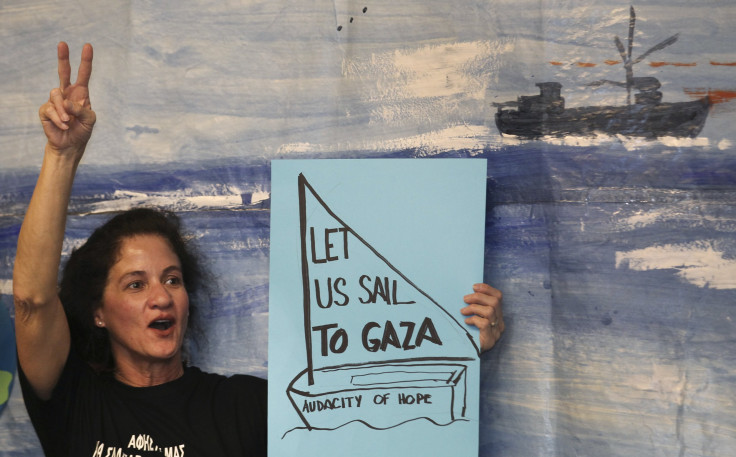'Freedom Flotilla' To Set Sail For Gaza In Bid To Break Israeli Blockade

At least three vessels carrying pro-Palestinian activists are preparing to depart for the Gaza Strip from Palermo on the Italian island of Sicily, in a bid to break the Israeli blockade of the Palestinian enclave, Al Jazeera reported Thursday. The activists, who belong to the Freedom Flotilla Coalition -- formed in 2010 after the first flotilla was attacked by Israeli troops -- said that they aim to reach Gaza before the end of June.
“Our aim is to end the siege of Gaza. We want the Palestinians to know that we haven't forgotten about them. There are many crises in the world, but the situation in Gaza is also really bad, and we do remember them,” activist Kalle Ohlsson told Al Jazeera.
The latest attempt to break the Israeli blockade -- imposed in 2007 after Hamas took control of the strip -- comes five years after 10 activists were killed in a botched raid of the Turkish ship Mavi Marmara, which was a part of the first Freedom Flotilla to Gaza.
The raid, carried out in international waters, led to widespread criticism of Israel, with the United Nations calling for “a full investigation to determine exactly how this bloodshed took place.” The incident also strained ties between Israel and Turkey, which called the attack an “act of piracy.”
Organizers of the latest flotilla reportedly said that details of the other boats and the final departure point were being kept secret to avoid sabotage.
“We’re hoping Israel won't use violence against us,” Ohlsson told Al Jazeera. “We're very concerned about safety. We have a strict non-violence policy.”
Currently, Palestinians are permitted to enter Gaza only through three access points -- the Rafah crossing in the south, connecting Gaza with Egypt, and the Kerem Shalom and Erez crossings controlled by Israel. In the past, the U.N. and several international rights group have criticized the blockade, terming it a “collective punishment” imposed on the residents of the Palestinian enclave.
“These restrictions have reduced access to livelihoods, essential services and housing, disrupted family life, and undermined the people’s hopes for a secure and prosperous future,” United Nations Office for the Coordination of Humanitarian Affairs said, in a report released in March.
© Copyright IBTimes 2025. All rights reserved.






















